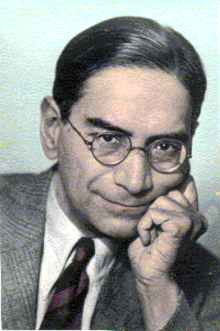Important Facts For Prelims
National Statistics Day
- 01 Jul 2022
- 5 min read
Why in News?
India observes National Statistics Day on 29th June every year to honour the work and contribution of late Professor and Scientist Prasanta Chandra Mahalanobis in the field of Statistics and economic planning.
- On this occasion, MoSPI (Ministry of Statistics and Programme Implementation) also recognizes outstanding contributions to the official statistical system through high-quality research in the fields of applied and theoretical statistics through awards established for this purpose.
What are the Key Highlights of the Day?
- Aim:
- To popularise the use of statistics in everyday life and sensitise the public as to how statistics help in shaping and framing policies.
- To raise public awareness, especially among the younger generation, about the role of statistics in socio-economic planning.
- Theme for 2022
- 'Data for Sustainable Development.'
- Every year, Statistics Day is commemorated with a theme of current national importance.
- 'Data for Sustainable Development.'
Who was Prasanta Chandra Mahalanobis?
- About:
- Prasanta Chandra Mahalanobis was a world-renowned Indian statistician who founded the Indian Statistical Institute (ISI) in 1932.
- He was a physicist by training when he became interested in statistics after reading Biometrika, a reputable peer-reviewed statistics journal at the time. Fascinated, he purchased the entire set of volumes of the journal.
- He soon discovered that statistics could be used in a variety of fields, including meteorology and anthropology, and this proved to be a watershed moment in his scientific career.
- Dr. Mahalanobis made numerous contributions to statistics, including the 'Mahalanobis distance,' which is a statistical measure. In addition, he was a pioneer in the field of anthropometry, or the study of human measurements, in India, and he assisted in the design of large-scale sample surveys and sampling methods.
- He also created the Feldman-Mahalanobis model, a Neo-Marxian model of economic development that was used in India's Second Five Year Plan, which promoted rapid industrialization of the country.
- Mahalanobis also served on India's first Planning Commission. He also received several awards, including the Padma Vibhushan.
- Relations with Rabindranath Tagore:
- They first met in shanti Niketan in 1910.
- Rabindranath Tagore, who was close to Mahalanobis, wrote in the second volume of Sankhya, "These are the dance steps of numbers in the arena of time and space, which weave the maya of appearance, the incessant flow of changes that ever is and is not."
- Mahalanobis wrote a series of essays titled ‘Rabindra Parichay’ (‘Introduction to Rabindra’) for the prestigious Bengali magazine, Probashi.
- PC Mahalnobis also helped Rabindranath Tagore in setting up Vishva Bharti.
- Timeline:
- 1930: Proposed the Mahalanobis Distance for the first time, which is a measure of comparison between two data sets.
- The formula is used to find the distance between a point and a distribution, based on measurements in multiple dimensions. It is widely used in the field of cluster analysis and classification.
- 1932: Founded the ISI in Kolkata (formerly Calcutta) which was declared as an institute of national importance in 1959.
- 1933: Launched ‘Sankhya: The Indian Journal of Statistics’.
- 1950: Established the National Sample Survey and set up the Central Statistical Organisation to coordinate statistical activities.
- 1955: Became a member of the Planning Commission and continued in that capacity till 1967.
- He was instrumental in formulating India’s second five-year-plan (1956-1961), which laid the blueprint for industrialisation and development in India.
- 1968: Honoured with the Padma Vibhushan.
- He was also conferred a large number of awards by international organisations.
- 1930: Proposed the Mahalanobis Distance for the first time, which is a measure of comparison between two data sets.





